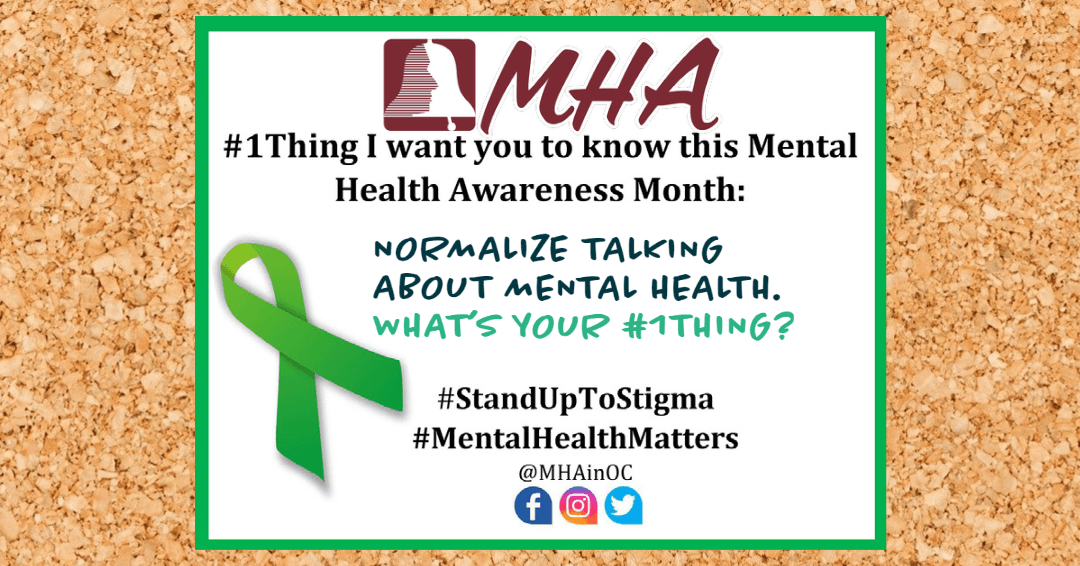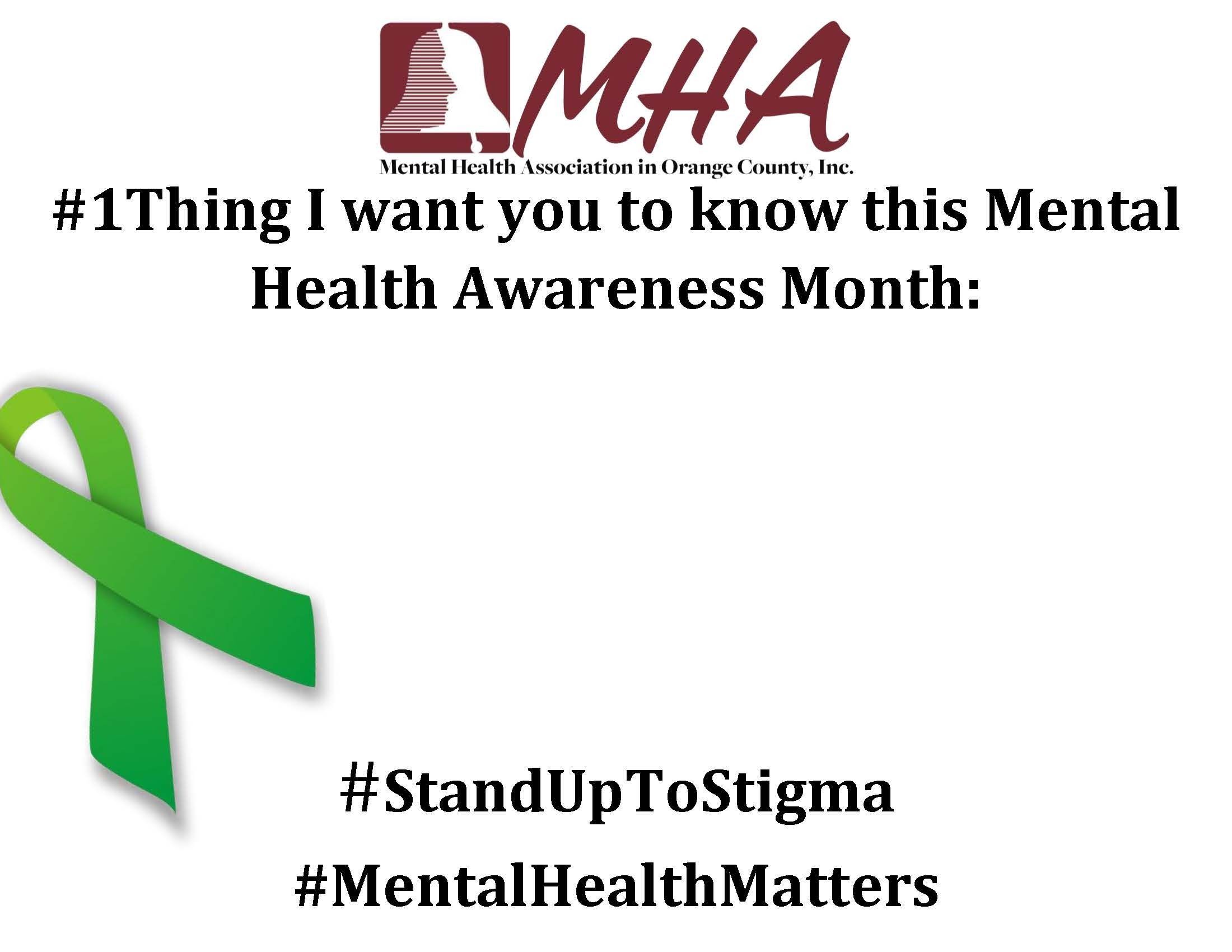Mental Health

Share Your #1Thing this May. We all have mental health; normalize talking about it!

Your mental health experiences are valid. Mental health can range from feeling good and thriving to unhealthy situations or conditions that can negatively impact our quality of life and overall wellness if left unaddressed. We all experience a range of mental health experiences and move throughout this continuum throughout our lives.
What Impacts Our Mental Health?
Where we are on the mental health continuum–from thriving to distressed–is influenced by a number of factors. Some we can control and others we cannot. Understanding the difference can help us influence and improve our well-being.
Factors that we cannot always control:
- Genetics
- Upbringing/early life experiences
- Past trauma or difficult experiences
- Medical history
- Other people’s perception of us
- Other people’s treatment or mistreatment of us
- Access to quality mental health care
- Factors that we can often control:
- Our perceptions of mental health and help-seeking
- Coping strategies (healthy or unhealthy approaches)
- Self-esteem and sense of purpose
- Self-care routines including nutrition, sleep, exercise and mindfulness
- Stress levels and how we manage stress and anxiety
- Relationships with friends and family members (support network)
- Substance use
- Willingness to talk openly about our thoughts and feelings
Donate to Support Our Community
At Mental Health Association in Orange County, we're dedicated to promoting mental well-being and advocating for those affected by mental health challenges. During Mental Health Awareness Month, we invite you to join us in our mission to raise awareness, reduce stigma, and provide support to individuals and families in need.
Your generous donations make a real difference in the lives of those struggling with mental health issues. With your support, we can continue to offer vital resources, educational programs, and advocacy efforts throughout Orange County.


